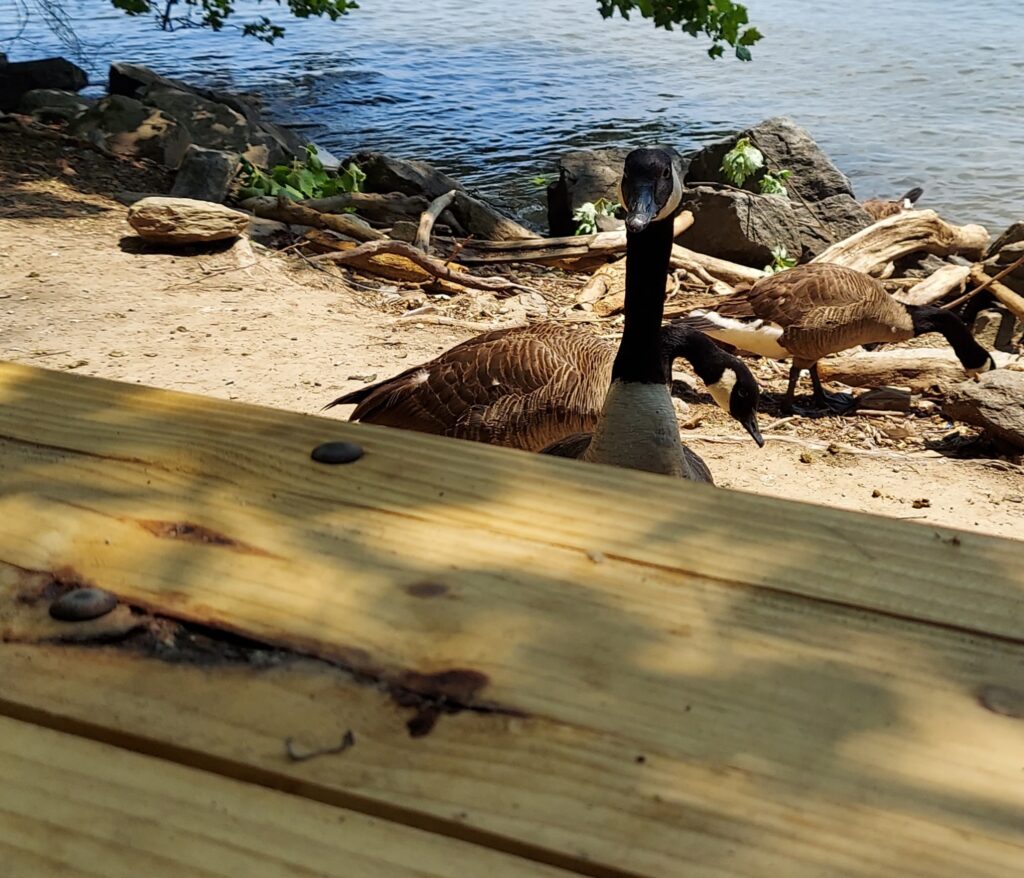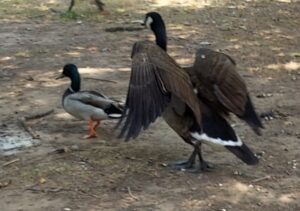Feeding Wild Animals Part 3

Signs of the Times: Do Not Feed the Animals
Aldo Leopold, one of the great thinkers of conservation strategy, wrote in his extremely popular book, A Sand County Almanac, that if you know the condition of the natural world, you will recognize with acute psychic pain that Nature is in deep trouble. To many who spend years working to save wildlife and wild places, the task becomes almost hopeless. But maybe we will succeed. I find a glimmer of hope in certain pole-mounted signs that punctuate parks and wildlife reserves: Do Not Feed the Animals.
Along beaches where signs warn people against eating potentially polluted fish and shellfish from adjacent waters (Do Not Feed the People), we also find signs warning people not to feed the gulls. In national parks worldwide, people are warned not to feed wildlife (where African lions are concerned, this sign is somewhat ambiguous). The signs are necessary, of course, because feeding animals seems to be a natural impulse for many people, an impulse so strong that we have to be warned against doing it. What does the kick we get out of feeding wildlife say about us? I think it indicates that at least some of us feel a link to our fellow travelers on this planet and want to establish some bond with them, however fleeting.
The Pleasure of a Shared Repast
Anyone who has thrown food to sea gulls, or to park ducks and crows, can sense the birds’ excitement—especially, for example, when a Canada goose chases a duck away from available peanuts or hovers protectively around its young. We have made a mark on their lives. And on some level, quite likely, we sense that we are finding a commonality with the animals we feed. All living things, including humans, are engaged in the same struggle to stay alive in an often dangerous world. When we feed wild animals we are uniting personally, for a few moments, with these creatures in the fight for survival. As we should. Life on Earth is such a complex scheme that it required an entire universe to generate it. Now our home planet is in the reckless hands of a hyperintelligent ape species—us. We have established dominion over the Earth, and our concept of dominion doesn’t seem to mean care for.

Problem: the bulk of human society tends to act as if our convenience is more important than healthy habitats and species survival. Want to make a buck? Cut that forest, drain that wetland, poison that coyote, shoot that wolf, contaminate that river, pollute that sky, mine that gold, coal, oil. How do we break away from that mind set? In what way do we choose to participate in the struggle for survival? Will we nurture other species? Or choose to be as mindless as glaciers, moving inexorably over the planet and laying waste to everything in front of us?
Do you share my suspicion that a species capable of space travel should be able to figure out a way to stop the annihilation of the planet?
Let’s feed birds.